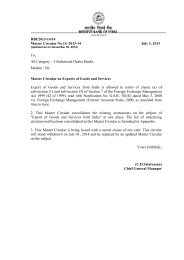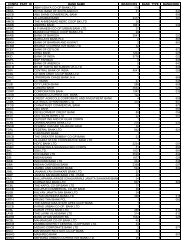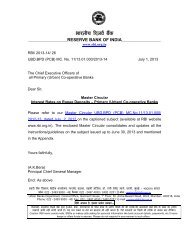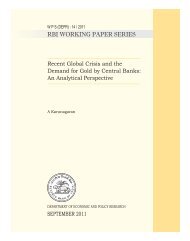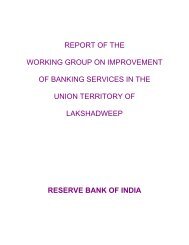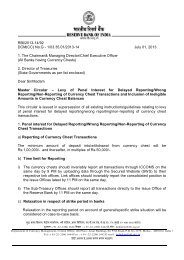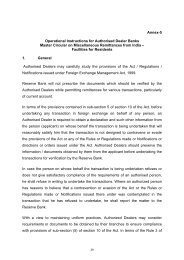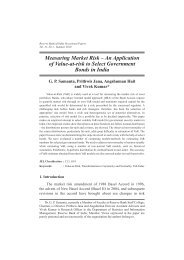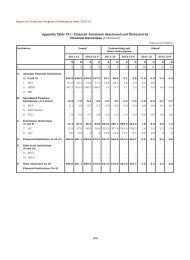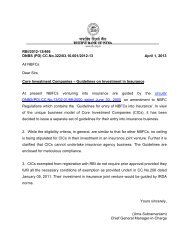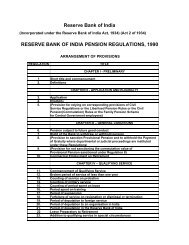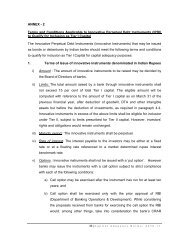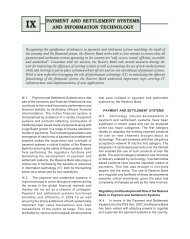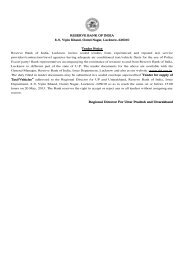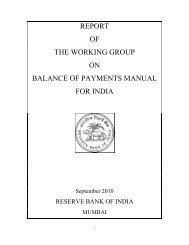CHAPTER 2 OVERVIEW OF FULLER CAPITAL ACCOUNT ...
CHAPTER 2 OVERVIEW OF FULLER CAPITAL ACCOUNT ...
CHAPTER 2 OVERVIEW OF FULLER CAPITAL ACCOUNT ...
Create successful ePaper yourself
Turn your PDF publications into a flip-book with our unique Google optimized e-Paper software.
2.3 The path to fuller capital account convertibility (FCAC) is becoming<br />
unidirectional towards greater capital account convertibility. For the purpose<br />
of<br />
this Committee, the working definition of CAC would be as follows:<br />
CAC refers to the freedom to convert local financial assets into foreign<br />
financial assets and vice versa. It is associated with changes of ownership<br />
in foreign/domestic financial assets and liabilities and embodies the<br />
creation and liquidation of claims on, or by, the rest of the world. CAC can<br />
be, and is, coexistent with restrictions other than on external payments.<br />
Changing International and Emerging Market Perspectives<br />
2.4 There is some literature which supports a free capital account in the<br />
context of global integration, both in trade and finance, for enhancing growth and<br />
welfare. The perspective on CAC has, however, undergone some change<br />
following the experiences of emerging market economies (EMEs) in Asia and<br />
Latin America which went through currency and banking crises in the 1990s.<br />
A few countries backtracked and re-imposed some capital controls as part of<br />
crisis resolution. While there are economic, social and human costs of crisis, it<br />
has also been argued that extensive presence of capital controls, when an<br />
economy opens up the current account, creates distortions, making them either<br />
ineffective or unsustainable. The costs and benefits or risks and gains from<br />
capital account liberalisation or controls are still being debated among both<br />
academics and policy makers. The IMF, which had mooted the idea of changing<br />
its Charter to include capital account liberalisation in its mandate, shelved this<br />
proposal.<br />
2.5 These developments have led to considerable caution being exercised by<br />
EMEs in opening up the capital account. The link between capital account<br />
liberalisation and growth is yet to be firmly established by empirical research.<br />
Nevertheless, the mainstream view holds that capital account liberalisation can<br />
be beneficial when countries move in tandem with a strong macroeconomic



